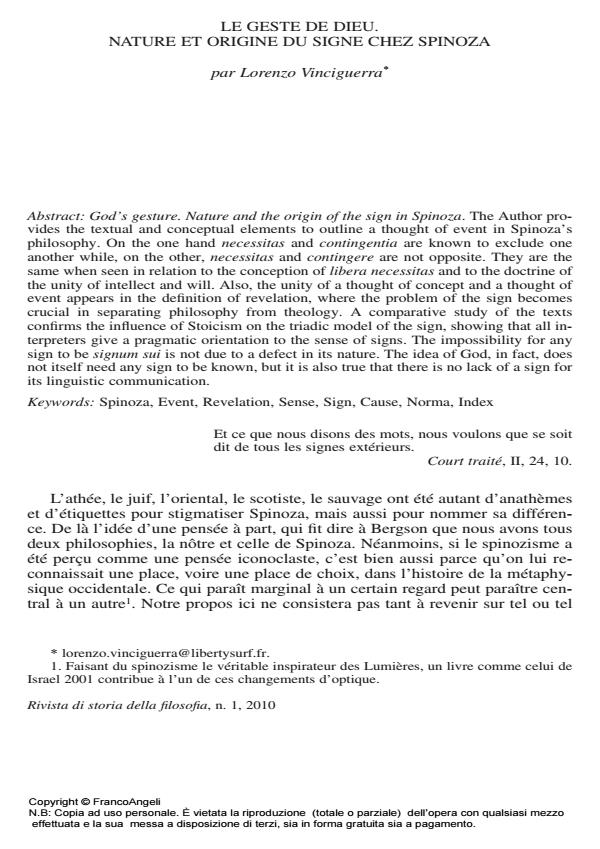Le geste de Dieu. Nature et origine du signe chez Spinoza
Journal title RIVISTA DI STORIA DELLA FILOSOFIA
Author/s Lorenzo Vinciguerra
Publishing Year 2010 Issue 2010/1
Language Italian Pages 15 P. 57-71 File size 693 KB
DOI 10.3280/SF2010-001003
DOI is like a bar code for intellectual property: to have more infomation
click here
Below, you can see the article first page
If you want to buy this article in PDF format, you can do it, following the instructions to buy download credits

FrancoAngeli is member of Publishers International Linking Association, Inc (PILA), a not-for-profit association which run the CrossRef service enabling links to and from online scholarly content.
God’s gesture. Nature and the origin of the sign in Spinoza. The Author provides the textual and conceptual elements to outline a thought of event in Spinoza’s philosophy. On the one hand necessitas and contingentia are known to exclude one another while, on the other, necessitas and contingere are not opposite. They are the same when seen in relation to the conception of libera necessitas and to the doctrine of the unity of intellect and will. Also, the unity of a thought of concept and a thought of event appears in the definition of revelation, where the problem of the sign becomes crucial in separating philosophy from theology. A comparative study of the texts confirms the influence of Stoicism on the triadic model of the sign, showing that all interpreters give a pragmatic orientation to the sense of signs. The impossibility for any sign to be signum sui is not due to a defect in its nature. The idea of God, in fact, does not itself need any sign to be known, but it is also true that there is no lack of a sign for its linguistic communication.
Keywords: Spinoza, Event, Revelation, Sense, Sign, Cause, Norma, Index
- Resilienz und Scheitern Martin Kintzinger, pp.77 (ISBN:978-3-658-48223-7)
Lorenzo Vinciguerra, Le geste de Dieu. Nature et origine du signe chez Spinoza in "RIVISTA DI STORIA DELLA FILOSOFIA" 1/2010, pp 57-71, DOI: 10.3280/SF2010-001003